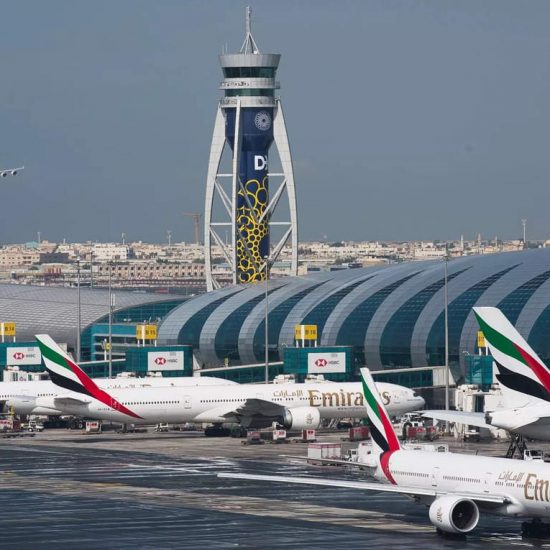 HSBC Holdings, struggling to contain a scandal over tax evasion at its private bank, reported lower-than-predicted fourth-quarter profit as costs and conduct provisions rose. The shares slumped the most since 2011.
HSBC Holdings, struggling to contain a scandal over tax evasion at its private bank, reported lower-than-predicted fourth-quarter profit as costs and conduct provisions rose. The shares slumped the most since 2011.
Pretax profit dropped 56 percent to $1.7 billion from the year-earlier period, London-based HSBC said in a statement on Monday. That missed the $3.7 billion average estimate of five analysts surveyed by Bloomberg. Full-year profit fell 17 percent to $18.7 billion, worse than analysts forecast.
Chief Executive Officer Stuart Gulliver’s efforts to spend billions on compliance and revive profit were eclipsed this month by a report from the International Consortium of Investigative Journalists showing details of how HSBC handled Swiss accounts for tax evaders and criminals. The CEO, 55, on Monday scrapped four-year-old profitability targets, blaming a “radically different” regulatory environment.
Shares of Europe’s largest bank slid as much as 6.5 percent, the largest decline since August 2011, and traded 5.1 percent lower at 3:35 p.m. in London. They have decreased about 5.6 percent this year after dropping 8.1 percent in 2014.
HSBC has become the center of a political storm at home following the ICIJ report, prompting Gulliver to issue full-page newspaper advertisements on Feb. 15 to offer his “sincerest apology.” Chairman Douglas Flint, 59, will be questioned by U.K. lawmakers on Wednesday in London over his role as finance director at the time.
British banks are already under pressure to toughen internal compliance and raise capital buffers amid a series of scandals. At HSBC’s Global Banking and Markets unit, which houses investment-banking activities, pretax profit dropped 38 percent to $5.9 billion in 2014, missing analyst estimates, as the lender set aside $809 million to cover costs related to a global probe into currency market manipulation.
Gulliver said on a conference call that the investment bank had a “satisfactory start” to 2015 and there’s “nothing strategic we need to do” to securities operations.
HSBC’s dividend for the year was 50 cents, compared with 49 cents a year earlier. The company’s common equity Tier 1 ratio, a measure of financial strength, fell to 11.1 percent from 11.4 percent at the end of the third quarter.
“Capital has really gone backwards, the dividend is weaker than expected and global banking and markets had a tough fourth quarter,” said Mike Trippitt, a London-based analyst at Numis Securities Ltd., with an add rating on the stock.
Operating costs climbed 6.1 percent to $37.9 billion in the year. Finance Director Iain Mackay forecast quarterly costs of about $9.5 billion over the coming years, with the U.K. bank levy adding an extra $1 billion a year. Adjusted revenue was little changed at $62 billion from the previous year.
“We are still on a journey to simplify the firm” and “I don’t rule out further disposals,” Gulliver said. HSBC, which generates most of its revenue in Asia, has some 51 million customers and a workforce of 266,000, according to its website.
Return on equity, a measure of profitability, fell to 7.3 percent in 2014 from 9.2 percent. HSBC said it’s looking for the measure to exceed 10 percent, compared with the 12 percent to 15 percent range set in 2011, when Gulliver took over as CEO.
“Whilst we expected an increase in the amount of capital we were required to hold when setting targets for the group in 2011, we could not have foreseen the full extent of the additional costs and capital commitment that would subsequently be asked of us,” HSBC said. “Some of the targets that we set for the group in 2011 are no longer realistic.”
Conduct fines, settlements, customer redress and associated provisions cost the bank $3.7 billion in 2014. Settlements and provisions for currency-rigging investigations were $1.2 billion, while U.K. customer redress program expenses were little changed at about $1.28 billion.
HSBC said in the statement that “recent disclosures around unacceptable historical practices and behavior within the Swiss private bank remind us of how much there still is to do.” It’s also a reminder of the “need for constant vigilance over the effectiveness of our controls and the imperative to embed a robust and ethical compliance culture.”
HSBC has been under enhanced scrutiny in the U.S. since 2012, when the bank reached a $1.9 billion deferred-prosecution deal with the Justice Department to resolve claims it enabled Latin American drug cartels to launder money. As part of the settlement, the U.S. Justice Department installed an independent monitor for five years.
The CEO was awarded compensation of 7.6 million pounds in 2014, down from 8 million pounds in 2013. His bonus was reduced by 500,000 pounds and 1.25 million was clawed back from 2013 pay following the currency-rigging fine last year, Gulliver said on a conference call on Monday.
Gulliver had his own Swiss bank account, used to hold bonuses, while domiciled in Hong Kong, the Guardian newspaper said late Sunday. He was listed as the beneficial owner of an account at HSBC Suisse in the name of Worcester Equities Inc., a company registered in Panama, and his bonuses were paid through that entity until 2003, the newspaper said.
HSBC said Gulliver declared his Swiss account to British authorities and has paid U.K. taxes on his earnings globally since moving to Britain in 2003, incurring the highest rate since he became CEO in 2011. He’s still domiciled in Hong Kong.
“There’s nothing Stuart has done that’s not totally legal and transparent,” Flint told reporters on a conference call, when the two executives were asked about the Guardian article. Gulliver said he considers Hong Kong his permanent home, even though he spends most of his time at headquarters in London, adding that he “expects to die abroad.”-Bloomberg








